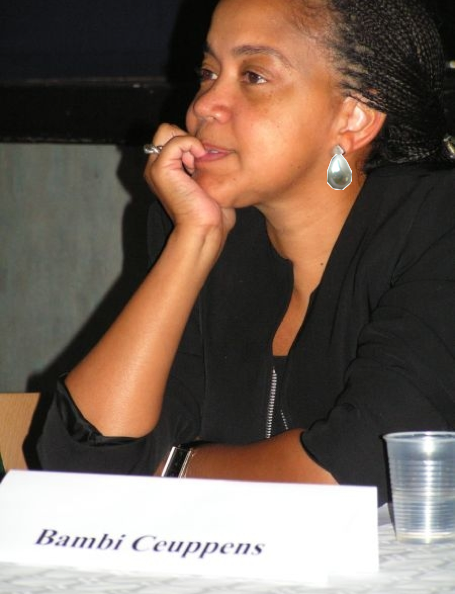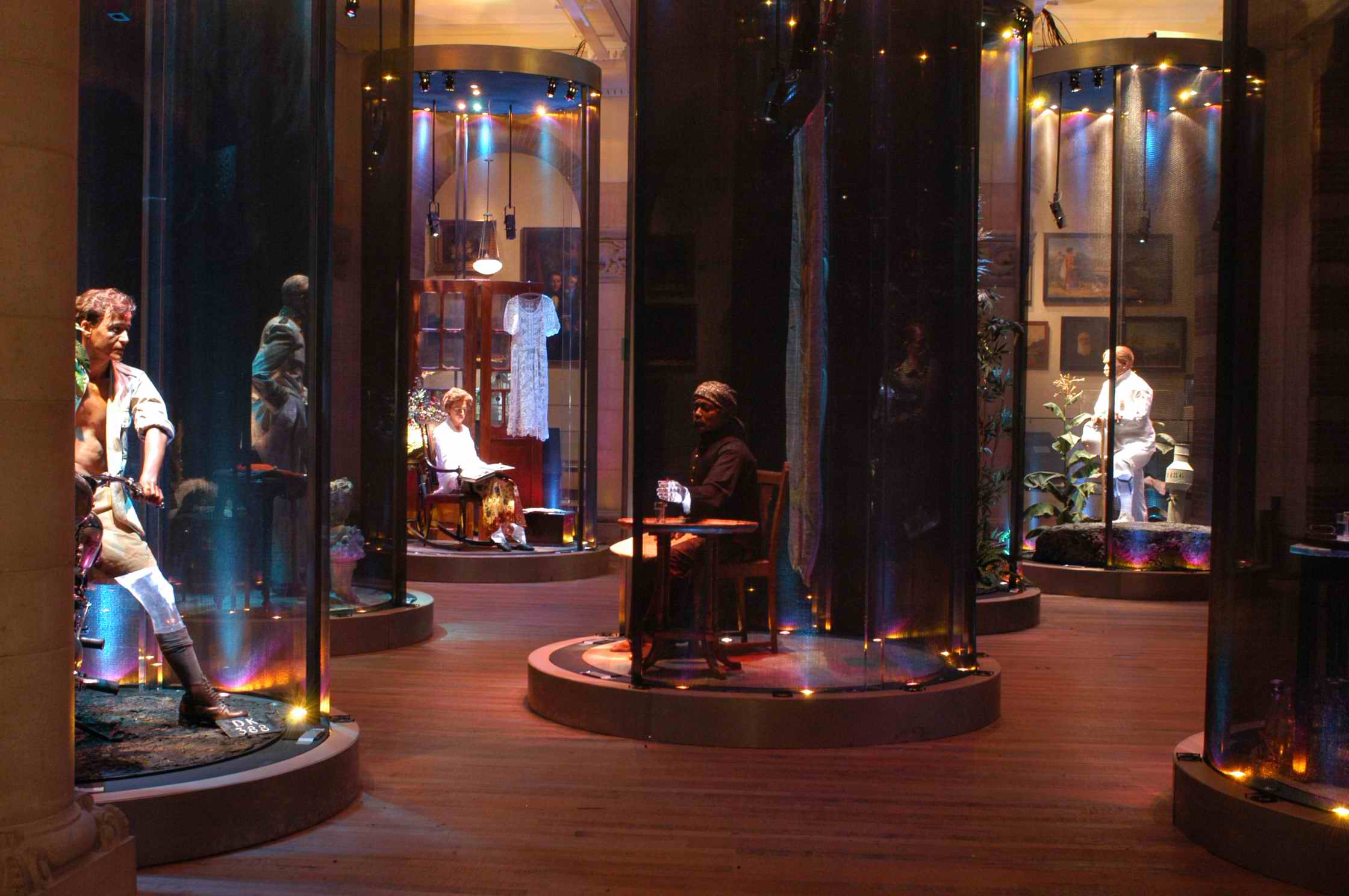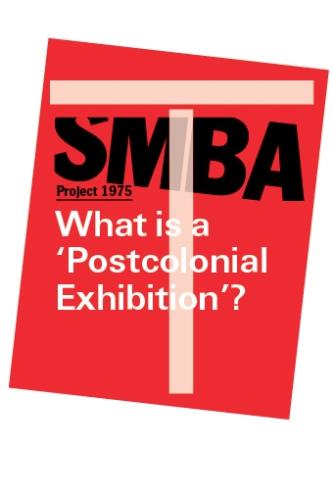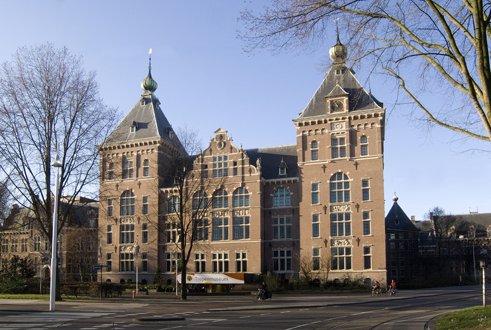 Wereldmuseum Amsterdam, formerly Tropenmuseum.
Wereldmuseum Amsterdam, formerly Tropenmuseum. Decolonising the Museum: Limits and Possibilities
On the occasion of the ongoing renovation (2013-2017) of the Royal Museum for Central Africa at Tervuren (Belgium) and the drastic budget cuts faced by the Tropenmuseum (Amsterdam), we devote our 16th meeting to a postcolonial reflection on the limits and possibilities of such museums in the 21st century. Anchored in the past by definition – ‘museum’ is derived from Gr. mouseion (‘testimony of a past’) and etymologically related to the Muses of Greek mythology, who were the daughters of Mnemosyne, the Goddess of memory, and personified the arts and knowledge) – museums exhibiting Europe’s colonial legacy increasingly have been subjected to criticism. All too often they focused on exhibiting the past, as well as its correlative, the geographically distant, as a way of making progress more tangible and promoted a unilinear evolutionist modernity that subordinated the Other.
Postcolonial theories of decolonization prompt us to reconsider these (neo-)colonial relations and to examine the possibilities of decolonization, as well as to perceive, articulate and possibly transcend the limitations of decolonization. How irreversible is the colonial appropriation and assimilation of one’s cultural heritage? Can the institutional framework of the museum be separated from the ideologies within which it took shape? What are the challenges of a radical postcolonial museum? Can it exist at all? And if so, how do we go about privileging postcolonial approaches to our colonial legacy? Can there be a (re)new(ed) responsiveness to the colonial archive from within the archive itself? Or can amnesia towards our colonial past better be altered by renewing the archive from the outside, for instance, by letting the museum focus on contemporary practices which challenge western self-satisfaction?
The meeting aims to gather enthusiastic researchers for a keynote lecture/debate, followed by close readings and intensive discussions revolving around developments within postcolonial studies today. A reader will be distributed in preparation of the seminar and on the day itself foods and drinks will be provided.
Registration
The meeting is open to all researchers but is specifically aimed at Research Master and PhD students working in the field of postcolonial studies. Participation is free of charge, but please register with Eloe Kingma of NICA/OSL. Young scholars interested in presenting their research project in the light of the meeting’s topic should contact Sarah De Mul. Active participation by Research Master students (presentation, response, short paper) may be awarded with 1 EC credit.
The Platform for Postcolonial Readings organizes seminars for all (junior) researchers in the Netherlands and Belgium who are committed to issues of postcoloniality and globalization. As an open network, platform for debate, and reading group, our meetings are open to all, but registration is required.
Reading
In preparation of discussion (a reader will be sent to all registered participants):
– Bragard, V., and S. Planche (2009). “Museum Practices and the Belgian Colonial Past: Questioning the Memories of an Ambivalent Metropole” In: African and Black Diaspora: An International Journal 2(2): 181-191/ in Thomas, D. (ed). Museums in Postcolonial Europe. Routledge: 54-64.
– Hasian, M. (2012). “Colonial Amnesias, Photographic Memories, and Demographic Biopolitics at the Royal Museum for Central Africa (RMCA).” Third World Quarterly 33(3): 475-493.
– Clifford, J. (2007). “Quai Branly in Process.” October 120: 3-23.
Additional reading suggestions:
– Rahier, J. M. (2003). “The Ghost of Leopold II: The Belgian Royal Museum of Central Africa and Its Dusty Colonialist Exhibition.” Research in African Literatures 34(1): 58-84. (for anyone not familiar with the museum)
-Hasian, M. and R. Wood (2010). “Critical Museology, (Post)Colonial Communication, and the Gradual Mastering of Traumatic Pasts at the Royal Museum for Central Africa (RMCA).” Western Journal of Communication 74(2): 128-149.
Program
10.30 Welcome & introduction of participants (Platform co-ordinators Elisabeth Bekers, Vrije Universiteit Brussel, & Sarah De Mul, Open Universiteit Nederland)
10.45 Introduction by guest-organiser Matthias De Groof (post-doctoral researcher, Universiteit Antwerpen)
11.00 Keynote Debate: “Decolonising the Museum: Limits and Possibilities” (moderated by Matthias De Groof & followed by discussion)
– Wayne Modest (head of the curatorial department, Tropenmuseum, Amsterdam)
– Bambi Ceuppens (post-doctoral researcher and curator at the Royal Museum for Central Africa, Brussels)
– Cas Bool (initiator of Framer Framed, Tolhuistuin, Amsterdam)
12.45-14.00 Lunch
14.00 Further Food for Thought and Discussion: Case Studies (moderated by Elisabeth Bekers & Sarah De Mul)
14.00 “Language as Art Object: Africa in the Museums of the Portuguese Language: Brazil & Portugal” by Patricia Schor (Universiteit Utrecht) followed by discussion
14.30 “Colonial Aphasia in the Rijksmuseum, Tropenmuseum and Bronbeek Museum” by Barend Blom (University of Amsterdam) followed by discussion
15.00 Break
15.15 “A Contrapuntal Interpretation of the RMCA (Brussels)” by Lies Busselen (Katholieke Universiteit Leuven) followed by discussion
15.45 Viewing and on-the-spot analysis of the trailer of Matthias De Groof’s Lobi Kuna and Rendez-les-moi (works- in-progress) followed by discussion
16.45 Concluding Remarks
17.00 Drinks
- The Guardian - Decolonising museums isn’t part of a ‘culture war’
- The Art Newspaper - Decolonising museums: the new network opening up the diversity debate in the Netherlands
Links
- Publicatie: Decolonising Museums
Bijlages
Koloniale geschiedenis / Museologie / Omstreden erfgoed /
Netwerk
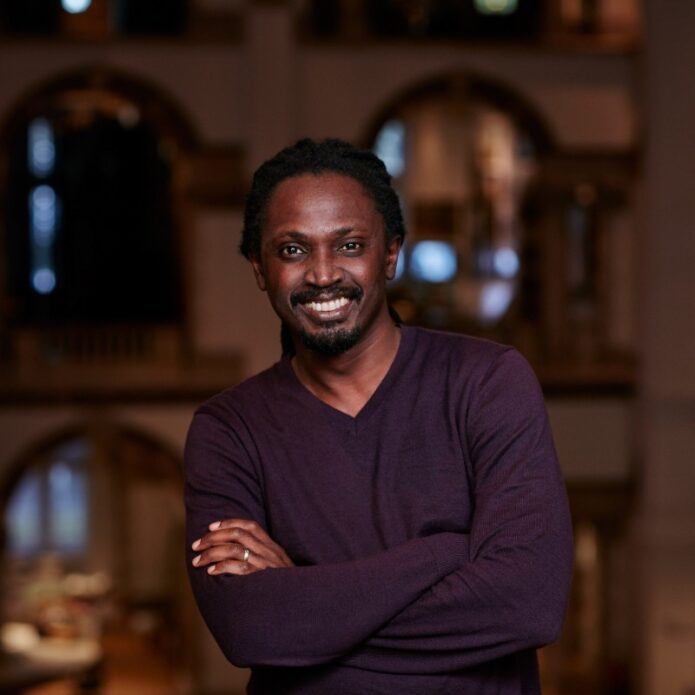
Wayne Modest
Directeur van het Museum van Wereldculturen
